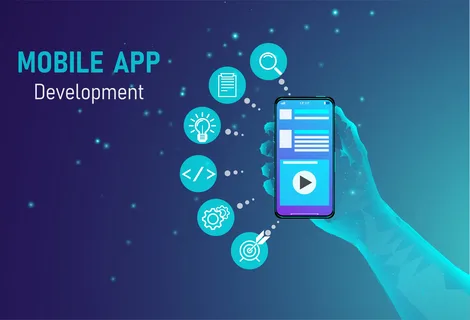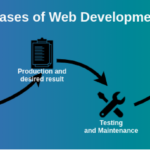
As technology continues to evolve at a rapid pace, mobile app development is undergoing significant changes that shape how businesses connect with their users. Staying informed about these trends is essential for developers, businesses, and marketers looking to capitalize on the mobile landscape. Here are some key trends to watch in the future of mobile app development.
1. Artificial Intelligence (AI) and Machine Learning
AI and machine learning are becoming integral to mobile app development. These technologies enhance user experiences by enabling personalized content recommendations, smart chatbots for customer service, and advanced data analytics. Apps that leverage AI can better understand user behavior, leading to more effective and tailored experiences.
2. 5G Technology
The rollout of 5G technology is set to revolutionize mobile app development. With faster internet speeds and lower latency, apps can deliver rich, high-quality content and seamless user experiences. Developers will need to optimize their apps to take advantage of these capabilities, enabling features like augmented reality (AR) and high-definition streaming.
3. Augmented Reality (AR) and Virtual Reality (VR)
AR and VR technologies are gaining traction in mobile app development, particularly in sectors like gaming, retail, and education. Apps that incorporate AR can provide interactive and immersive experiences, allowing users to visualize products or scenarios in real-time. As hardware becomes more advanced, expect to see even more innovative uses of these technologies.
4. Cross-Platform Development
With the increasing demand for apps that work seamlessly across multiple platforms, cross-platform development frameworks like React Native and Flutter are becoming more popular. These tools allow developers to write code once and deploy it on both iOS and Android, saving time and resources while ensuring a consistent user experience.
5. Internet of Things (IoT) Integration
The integration of IoT devices with mobile apps is on the rise. As more devices become interconnected, apps will increasingly serve as control centers for managing smart home devices, wearables, and other IoT gadgets. Developers will need to focus on creating seamless connectivity and user-friendly interfaces to manage these complex ecosystems.
6. Focus on Security and Privacy
As data breaches and privacy concerns continue to rise, mobile app security is more critical than ever. Developers must prioritize secure coding practices, implement strong authentication methods, and ensure compliance with data protection regulations. Building trust with users through robust security measures will be essential for app success.
7. Voice and Conversational Interfaces
With the rise of voice-activated devices and virtual assistants, integrating voice and conversational interfaces into mobile apps is becoming increasingly important. Users appreciate the convenience of hands-free interactions, so developing apps that can respond to voice commands will enhance user engagement and accessibility.
8. Low-Code and No-Code Development
The demand for rapid application development is driving the popularity of low-code and no-code platforms. These tools empower non-developers to create and customize apps with minimal coding knowledge, allowing businesses to bring their ideas to market more quickly and efficiently.
9. Subscription-Based Business Models
Subscription-based models are becoming a popular revenue stream for mobile apps, particularly in sectors like media, gaming, and fitness. This model encourages user retention and creates a steady income stream for developers. As competition increases, offering valuable, subscription-worthy content will be essential.
10. Sustainability in App Development
As environmental awareness grows, mobile app developers are increasingly focused on sustainability. This includes optimizing apps for energy efficiency, reducing server loads, and promoting eco-friendly practices within the app itself. Brands that prioritize sustainability will resonate with environmentally-conscious consumers.
Conclusion
The future of mobile app development is vibrant and full of potential. By keeping an eye on these emerging trends, businesses and developers can adapt their strategies to create innovative and impactful mobile experiences.






